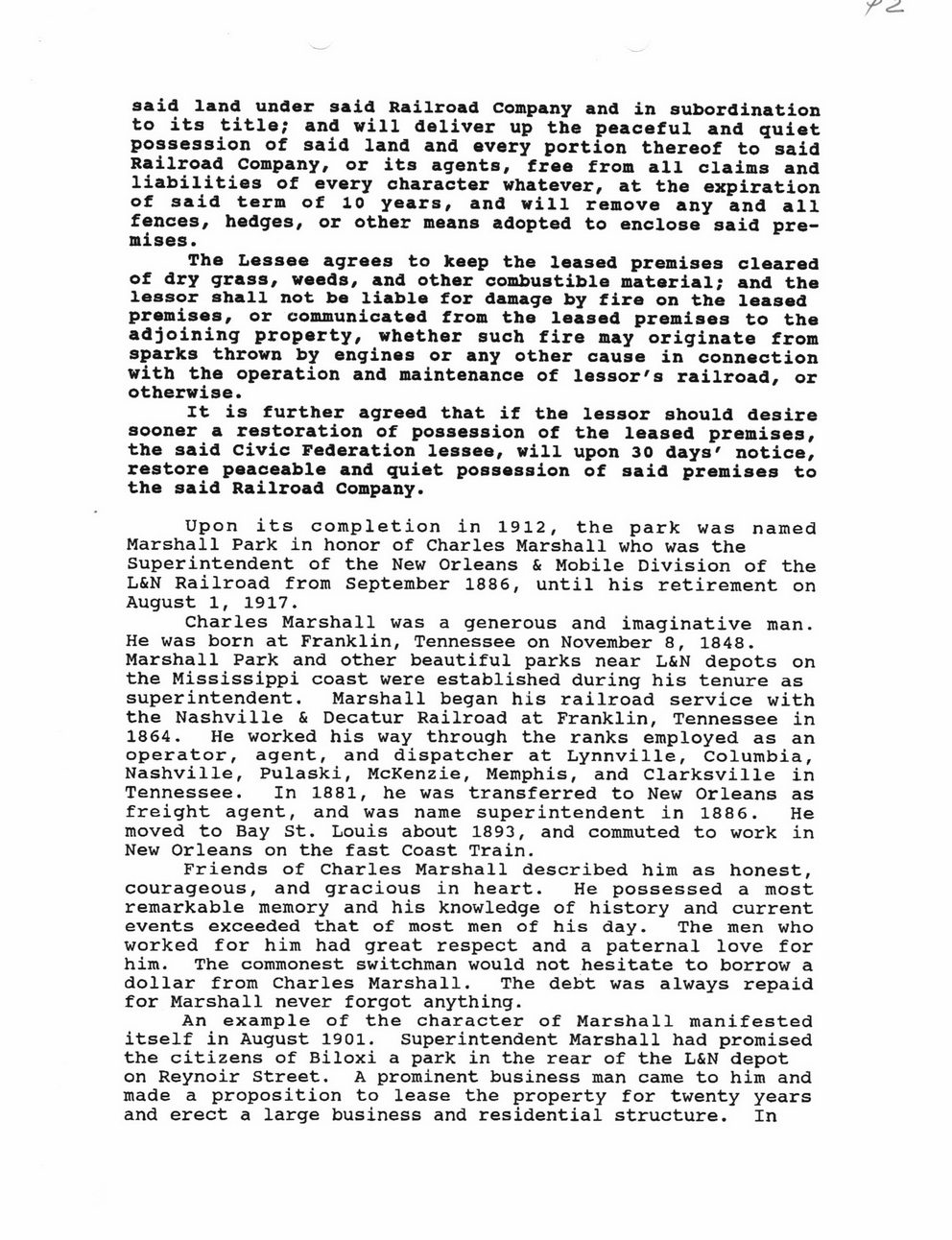This text was obtained via automated optical character recognition.
It has not been edited and may therefore contain several errors.
said land under said Railroad Company and in subordination to its title; and will deliver up the peaceful and quiet possession of said land and every portion thereof to said Railroad Company, or its agents, free from all claims and liabilities of every character whatever, at the expiration of said term of 10 years, and will remove any and all fences, hedges, or other means adopted to enclose said premises. The Lessee agrees to keep the leased premises cleared of dry grass, weeds, and other combustible material; and the lessor shall not be liable for damage by fire on the leased premises, or communicated from the leased premises to the adjoining property, whether such fire may originate from sparks thrown by engines or any other cause in connection with the operation and maintenance of lessor's railroad, or otherwise. It is further agreed that if the lessor should desire sooner a restoration of possession of the leased premises, the said Civic Federation lessee, will upon 30 days' notice, restore peaceable and quiet possession of said premises to the said Railroad Company. Upon its completion in 1912, the park was named Marshall Park in honor of Charles Marshall who was the Superintendent of the New Orleans & Mobile Division of the L&N Railroad from September 1886, until his retirement on August 1, 1917. Charles Marshall was a generous and imaginative man. He was born at Franklin, Tennessee on November 8, 1848. Marshall Park and other beautiful parks near L&N depots on the Mississippi coast were established during his tenure as superintendent. Marshall began his railroad service with the Nashville & Decatur Railroad at Franklin, Tennessee in 1864. He worked his way through the ranks employed as an operator, agent, and dispatcher at Lynnville, Columbia, Nashville, Pulaski, McKenzie, Memphis, and Clarksville in Tennessee. In 1881, he was transferred to New Orleans as freight agent, and was name superintendent in 1886. He moved to Bay St. Louis about 1893, and commuted to work in New Orleans on the fast Coast Train. Friends of Charles Marshall described him as honest, courageous, and gracious in heart. He possessed a most remarkable memory and his knowledge of history and current events exceeded that of most men of his day. The men who worked for him had great respect and a paternal love for him. The commonest switchman would not hesitate to borrow a dollar from Charles Marshall. The debt was always repaid for Marshall never forgot anything. An example of the character of Marshall manifested itself in August 1901. Superintendent Marshall had promised the citizens of Biloxi a park in the rear of the L&N depot on Reynoir Street. A prominent business man came to him and made a proposition to lease the property for twenty years and erect a large business and residential structure. In

Marshall, Charles Charles-Marshall-Copy-in-1993-Vault-Binder-part2